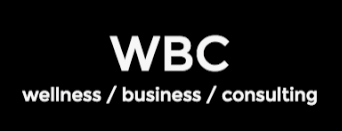Rachel Beider shares advice in INC Magazine:
In business communication, it's not always about the things you say and how you say them, but also about what your body language conveys, sometimes unintentionally. As the success of your career as an entrepreneur and the growth of your organization hinge on good communication, being aware of your body language at all times and even "mastering" this language can make all the difference during your next big meeting with a potential investor or partner.
To help, these seven entrepreneurs share some of the most common body language mistakes to avoid and why getting rid of these bad habits is essential for a thriving business career.
Poor Posture and Gait
"As a licensed massage therapist, I can tell you that posture and gait can say a ton about your headspace," PRESS Modern Massage CEO Rachel Beider explains.
According to Beider, when people are nervous they tend to shift back and forth from one foot to the other, as if they are swaying back and forth, and that is unlikely to make a good impression on your interlocutors. "Ground yourself by squeezing your glutes and widening your stance. You'll appear more confident," she advises.
Hands in Your Pockets
In addition, many people don't know what to do with their hands during a conversation and end up fidgeting, crossing their arms or even shoving their hands in their pockets. According to SeedProd LLC founder John Turner, keeping your hands in your pockets during an important conversation can make your interlocutor think you're nervous or self-conscious, which is not the image you want to present to a potential investor.
"If you're not sure what to do with your hands, look at the other person. If they have their hands on the table, do the same. Mirroring body language is actually a subtle way to build a bond," Turner suggests.
Touching Your Face
One thing an entrepreneur should definitely avoid doing with their hands during an important conversation is touching their face, LTVplus CEO David Henzel chimes in.
"Typically, when people touch their face during conversations, it's a good indicator that they are being dishonest," Henzel says. "If you want to leave a lasting first impression with a VIP, keep your hands in a natural position and avoid scratching, touching or picking your face."
Shrugging Your Shoulders
Similarly, entrepreneurs should refrain from shrugging their shoulders because that typically conveys a lack of knowledge, thinks Serenity Gibbons, local unit lead for NAACP in Northern California.
"Shrugging shoulders says you don't know something, and no investor will invest in someone who seems unsure of themselves or what they are pitching. Instead, be prepared and confident about what you are pitching and focus on eye contact and smiles," Gibbons recommends.
Avoiding or Prolonging Eye Contact
The right amount of eye contact is also a crucial element of non-verbal communication, adds Alphametic CEO Matthew Capala, explaining how many entrepreneurs either avoid it completely or prolong it unnecessarily.
"Eye contact at crucial moments of an interaction engenders trust and connection," Capala explains. "It may feel silly at first, but try to become aware of how you make eye contact in your daily interactions with strangers and note the outcome. If the interaction is successful, practice the pattern."
Manspreading
Manspreading is another bad habit entrepreneurs -- male and female alike -- should avoid at all costs, according to Beck Bamberger, founder of BAM Communications.
"Taking up too much space by spreading yourself all over a chair, couch or seat conveys an obnoxious degree of self-importance and dominance. Don't do it. Contain yourself," Bamberger adds.
Checking Your Messages
"If you are in an important meeting with investors, put your phone away. Leave it in the car, silence it, turn it off, whatever you have to do," LFNT Distribution co-founder Colbey Pfund recommends.
Checking your messages during a conversation is not only disrespectful but also suggests that you are not really interested in what the other person has to say. "If you pull your phone out mid-meeting, to me that says you think you have better places to be. Put it away and stay present in the meeting at hand. You owe it to those who agreed to share their time with you," Pfund concludes.

